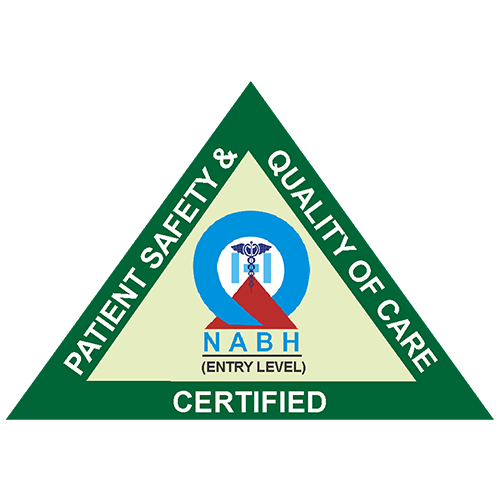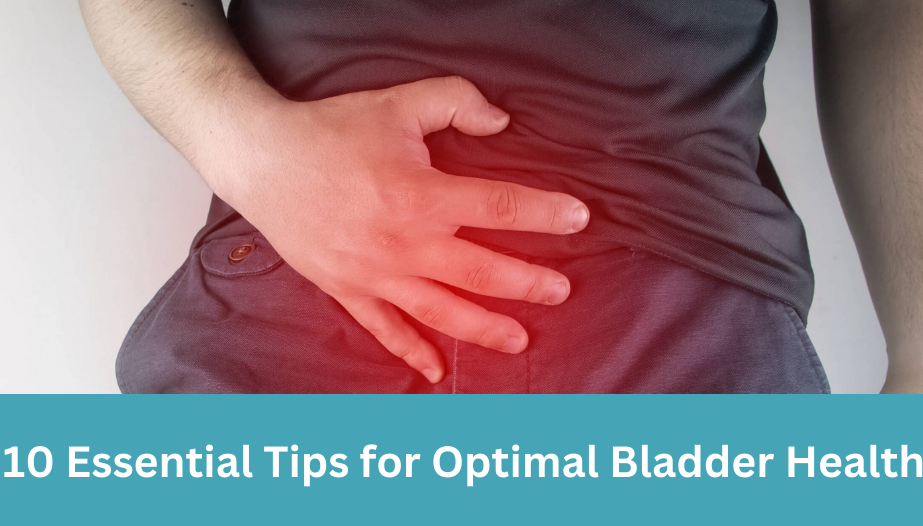Introduction:
Maintaining good bladder health is an essential aspect of overall health and well-being. The bladder is a vital organ that stores urine before it is eliminated from the body. However, several factors can affect bladder health, including diet, lifestyle habits, medical conditions, and ageing. Bladder problems can cause discomfort, pain, and even embarrassment, affecting an individual’s quality of life. Fortunately, there are several ways to keep your bladder healthy and functioning optimally. In this blog, we will share ten useful tips for maintaining a healthy bladder, including lifestyle changes, dietary modifications, and practical strategies to help you manage your bladder health. Whether you are looking to prevent bladder issues or manage existing conditions, these tips can help you achieve and maintain good bladder health.
1) Stay hydrated:
Drinking enough water is essential for maintaining good bladder health. Aim to drink at least 8 glasses of water a day to keep your bladder well hydrated.
2) Avoid bladder irritants:
Certain foods and drinks, such as caffeine, alcohol, citrus fruits, spicy foods, and artificial sweeteners, can irritate the bladder and lead to bladder problems. Limit your intake of these bladder irritants.
3) Practise good bathroom habits:
Don’t hold your urine for too long, and empty your bladder completely when you go to the bathroom. Also, avoid rushing when you go to the bathroom, and take your time to ensure that your bladder is entirely emptied.
4) Maintain a healthy weight:
Being overweight can put extra pressure on your bladder, leading to bladder problems. Maintain a healthy weight through a balanced diet and regular exercise.
5) Practice Kegel exercises:
Kegel exercises help to strengthen the pelvic floor muscles, which support the bladder and urethra. Strong pelvic floor muscles can prevent bladder leaks and improve bladder control.
6) Don’t smoke:
Smoking can irritate the bladder and increase the risk of bladder cancer. Quitting smoking can improve your bladder health and reduce your risk of bladder-related issues.
7) Wear comfortable clothing:
Tight-fitting clothes can put pressure on your bladder, leading to bladder leaks and other problems. Wear loose-fitting clothing to ensure that your bladder is not under unnecessary pressure.
8) Practise good hygiene:
Proper hygiene can prevent urinary tract infections, which can affect the bladder. Wipe from front to back after using the bathroom, and clean your genital area before and after sexual activity.
9) Manage chronic conditions:
Certain chronic conditions, such as diabetes and multiple sclerosis, can affect bladder health. Work with your healthcare provider to manage these conditions and reduce their impact on your bladder.
10) Seek medical attention:
If you experience persistent bladder-related issues, such as pain, leaks, or incontinence, seek medical attention. Your healthcare provider can help you identify the underlying cause of your symptoms and provide appropriate treatment.
Common Bladder Problems and When to See a Doctor:
Common bladder problems include urinary tract infections (UTIs), overactive bladder, urinary incontinence, bladder stones, and bladder cancer. These problems can cause symptoms such as pain or burning during urination, frequent urination, urgency to urinate, leakage of urine, and blood in the urine.
It is essential to seek medical attention if you experience persistent or severe bladder problems. Delaying treatment can lead to complications and worsen the underlying condition. Here are some signs that indicate you need to seek help:
- Persistent pain or discomfort in the bladder or urinary tract
- Blood in the urine
- Difficulty passing urine
- Frequent urinary tract infections
- Leakage of urine or inability to control bladder function
- Changes in the color, smell, or consistency of urine
- A sudden increase in the frequency or urgency of urination
- Pain in the lower abdomen, back, or sides
It is also essential to seek medical attention if you have a history of bladder-related issues or have risk factors for bladder problems, such as smoking or a family history of bladder cancer. Your healthcare provider can help you identify the underlying cause of your bladder problems and provide appropriate treatment. Treatment options may include lifestyle changes, medication, physical therapy, or surgery, depending on the severity and nature of the problem.
Conclusion:
In conclusion, taking care of your bladder health is crucial for overall well-being. Simple lifestyle changes, dietary modifications, and practical strategies can help you maintain a healthy bladder and prevent bladder-related issues like urinary incontinence and urinary tract infections. The ten tips we shared in this blog, including staying hydrated, avoiding bladder irritants, practising good bathroom habits, and seeking medical attention when needed, can be easily incorporated into your daily routine. By following these tips and making bladder health a priority, you can improve your quality of life and avoid bladder-related complications. Remember that early detection and treatment of bladder problems are crucial for effective management, so don’t hesitate to seek medical attention if you experience persistent or severe bladder-related issues. Start implementing these tips today and take the first step towards a healthier, happier life!




